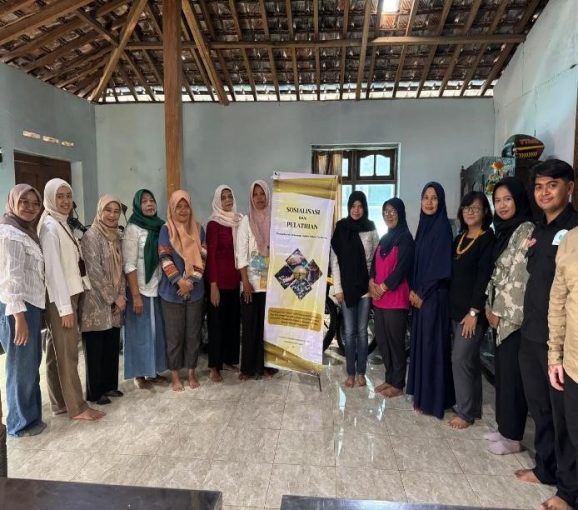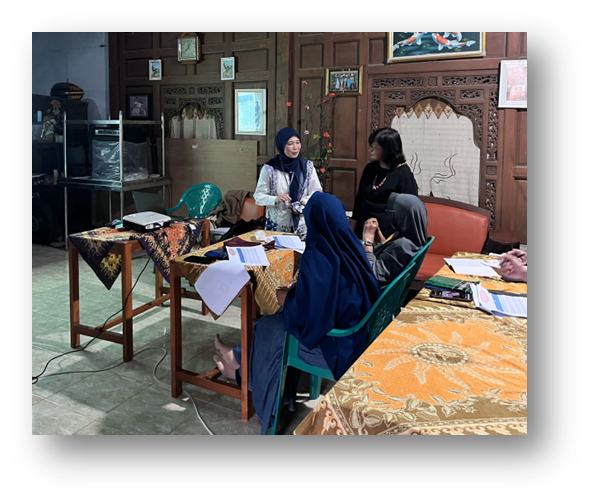
The Nile tilapia aquaculture industry plays a vital role in ensuring food security, strengthening the local economy, and improving community welfare, especially in rural areas. To establish productive and sustainable enterprises, women’s empowerment has become a key focus through an inclusive social approach. Digital transformation offers a strategic opportunity for women to gain access to new knowledge and skills in fish farming and processing. However, this digitalization process also presents challenges, particularly in terms of social and cultural barriers that limit women’s access to and adaptation of technology.

In response to these challenges, a team from Universitas Gadjah Mada (UGM), in collaboration with industry partner PT Banoo Inovasi Indonesia, organized a Digital Bookkeeping Training for Nile Tilapia Farming and Processing Businesses at Pokdakan Mina Ngremboko, Bokesan Hamlet, Sindumartani Village, Sleman. This location was selected for its productive aquaculture and fish processing activities, and its development as a mina tourism destination. The training, which began in March 2025, was attended by ten women from farming and processing groups. The training materials were tailored to address limitations in digital literacy caused by traditional gender role norms.
Throughout the training, participants demonstrated great enthusiasm and began applying digital bookkeeping systems in their businesses. In addition to technical skill enhancement, the training also raised awareness about the importance of financial record-keeping and simple business evaluations, while fostering solidarity among participants. Thus, the training not only improved individual capacity but also strengthened social networks and the spirit of collaboration for the sustainable development of Nile tilapia farming and processing. This initiative supports several Sustainable Development Goals (SDGs), particularly SDG 5 (Gender Equality), by directly empowering women in the fisheries sector through enhanced digital and managerial literacy. It also contributes to SDG 8 (Decent Work and Economic Growth) by strengthening women’s microenterprises to be more efficient and sustainable, as well as SDG 10 (Reduced Inequalities) by expanding equitable access to knowledge and resources.
Author: Fathurrahman Kafi
Editor: Nahla Alfiatunnisa, S.Pi.
